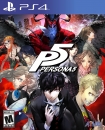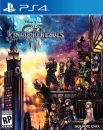| caffeinade said: Nintendo does not want to reduce the value of their games; not just in terms of monetary value. They don't want to taint the image of their IPs, by selling the games at a lower price. Doing this they can train their consumers to perceive their games as higher value, because they paid more for them. The rigid pricing structure and the way they space out the releases in a franchise; adds to the perception of quality that their titles excrete. It does them no harm that their games are really well designed too. |
This sums up my thoughts. For once I slightly disagree with Rol. While Nintendo does generally produce higher-than-average quality products, I think their pricing structure also trains customers that, regardless of perceived quality, you might as well pony up the cash right away if you're at all excited about the game.
Almost everyone else in the industry (probably there are exceptions, maybe Blizzard) follows the cycle below, which the observant cheapo can exploit, and which is designed for maximum milkage of hardcore gamers.
1. Release at full price (maybe with a premium package too)
2. Release DLC
3. Release a "Complete" retail version with DLC (hello Horizon Zero Dawn and Street Fighter V)
4. Dump the price
It tends to happen like clockwork, sometimes they might skip step 3 if the game sucks / sells bad, but the industry is so confident in this model that they just keep doing it even when a game is good enough to survive at full price for a while (I'd say HZD could have stayed at full price). I'd argue it's a mistake, but to be honest, it seems to have worked for more than a decade so maybe it's a good business move?
For me personally, I will not buy most industry games at full price anymore because it's only 12-24 months until you reach step 4. If the game is a real quality title, it will still be fun two years later, and it will cost you half of the original retail price and maybe even less than quarter of the cost including the price of DLC.































































